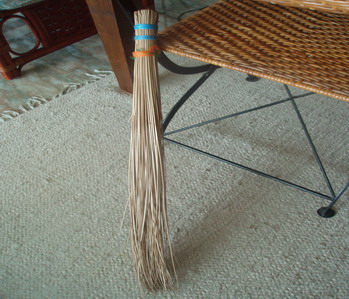I started speaking Bahasa Indonesia in the early ’90s. Back then, I worked as a personal assistant in an international company and the regional marketing manager only spoke English. I was also work as trainer. Then after I got married, my husband was posted to Jakarta again by his company. So, I basically had to learn the language all over again. Because the first time, I was there as a professional and the second time, I was a homemaker. I learned the language again in order to speak with the locals and my domestic helpers.

I Was Uncertain Of How To Begin
At first, I was not sure how to begin. Should I try to understand their language first or expect the locals to understand mine first? After all, there is more of them and then there is only one of me.
But I must quickly make some sense of what has to happen so I can enjoy my stay. So the most logical step is that I must adapt to the new environment. I have to observe how things work, how people live and the way they go about living their lives every day. My focus has to shift towards learning to accept what is available for me.
I started to see things as they are so it does not complicate my life. For instance, if I cannot drink water right off the tap, I only need to prepare bottled water. If it is not safe to go on public transport, I must call a taxi or have my driver take me to work and home from work every day.
I Started To Adapt To The Environment
As time passes, I begin to adapt to my new environment. I discover that many of the modern conveniences which I used back home in Singapore are unnecessary. I watch how the gardener cut the grass with a pair of garden shears. The maid does the laundry by hand and sweeps and mops the floors every day.
There is less need to rely on modern household appliances because I have helpers. I become patient with myself because when I give instructions to the driver and the maid, I have to express myself more clearly, and in a language that only they can understand. And because my Indonesian language is not so fluent yet, I discover that I must be patient with myself because I have to learn to communicate in their language. And I also have to be patient with them too.
Our domestic staff come from rural villages in Java, Indonesia. They have never used most of the modern household appliances that we have. One of them is the vacuum cleaner. My cleaner would use brooms to sweep the floor. The broom has dried stems from coconut leaves that are bunched together and is called ‘sapu lidi’. Sapu is called ‘broom’ in Malay or Indonesian languages, and lidi is a stick. These sticks are tied together to form a handle. You wrap your palm around this end and start sweeping.

Make It Useful, Simple And Easy
Ok, I think you get the idea. There are ways to get things done that are simpler. So when the pace of life slows down, we will notice more of what you need to do. In other words, we can pay more attention because the work that needs doing gets more attention. There is more focus. The actions become more gentle and less hurried. We also start to notice more about how we use our senses to carry out the tasks. For instance, how long can I twist my wrist and bend my back as I sweep the floor before I feel that I need to take a rest? The senses become quickly responsive to the impressions of your muscular movements. When the actions are soft and gentle, we discover more about the subtle movement of our bodies. On the contrary, when actions are louder, the force of your energy returns more than twice its force to your senses. We might end up overlooking the most basic functions of the body.
What does this have to do with communication or language development? This sublimity of actions and responses to the muscular movement of senses is essential in communication. If we communicate with people with whom we do not share a common language, we must connect at their level. Because communication works both ways, we should take the first step in making that adjustment. If we act fast or respond too quickly, we may not communicate as effectively. Bear in mind that I still want to maintain my standards. So in communicating with the staff, I need to find a balance.
Giving Instructions To My Cook
I wish to share an experience I had with the cook. When I gave instructions for grocery shopping, I would come to her with a grocery list and money. I had to show her pictures and samples of the items on my grocery list. Only then will I feel confident she understands what I need. I also had to clarify the names written in English, such as pasta, mozzarella cheese, ladies finger (okra), noodle (mee) and flour (tepung).
I Work With The Environment
We adapt, we form impressions upon the environment, and we then gain new knowledge. This is exactly the same method used by us throughout our childhood.
Many overseas expatriates learn to speak a foreign language in this manner. So I am no exception. In my case, I created a system of learning that helps me become more proficient at that language. I do not use textbooks or the dictionary. I work with the environment. The impressions upon the environment are how I gain new knowledge to work with as I transform myself to become proficient in speaking Bahasa Indonesia.


Great Blog.
S and H x
It is very interesting the way you have been observing language development
I have heard that when learning a new language it is best not to try to translate from a known language to it. Rather one should start from scratch as a child does and slowly build up our vocabulary. Do you think that is the right way?
The steps you have laid out seem like the perfect way of learning a new language.
Yes, the only way is to revisit childhood methods, understand how one language has spun success to learn another without much effort. Many terms have been used to explain the phenomenon including synapses and mneme.
Anything we learn that is new follows some natural laws of development and if you break it down, it boils down to simplicity and discovery. As a child, we use this principle and can easily become proficient in more than 1 spoken language.
In adults, simplicity and discovery, are remote. So learning becomes a task and chore. What is needed therefore, is to help adults realise the patterns of their own childhood development. It explains why only adults who are good swimmers as kids can become good coaches, because they understand the pattern of learning, not the coaching techniques.